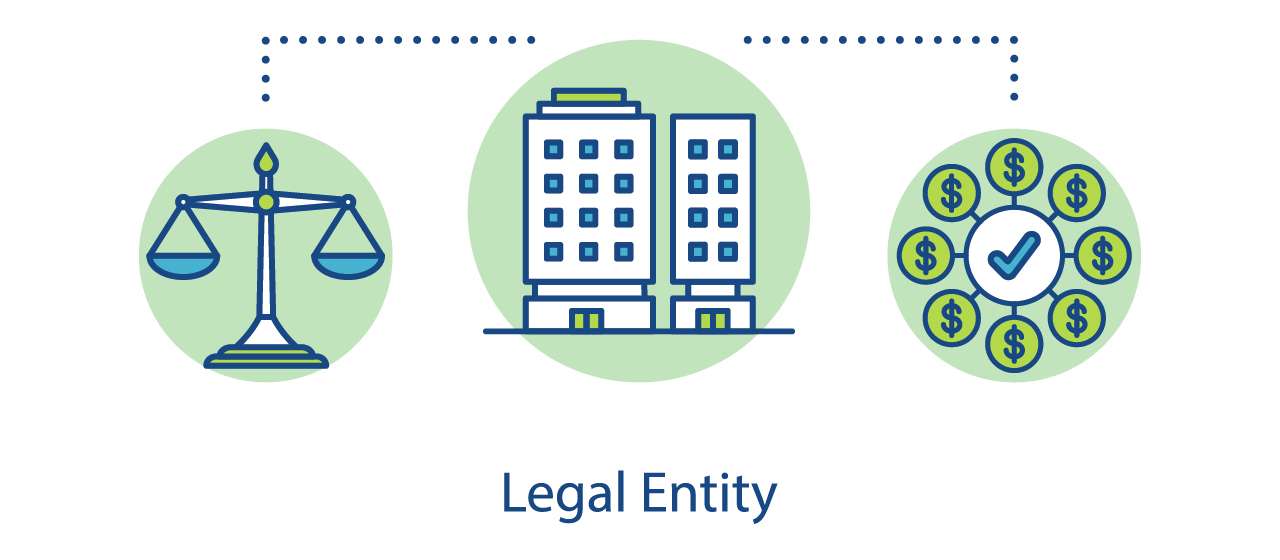The Importance of US Disclosure for Expats
Courtney Griffiths
June 30, 2024

Living abroad as an American expat can be an exciting adventure filled with new experiences and opportunities. However, it also comes with its own set of responsibilities, particularly regarding financial and tax disclosures. Understanding and complying with US disclosure requirements is crucial for expats to avoid legal complications and financial penalties.
This blog will explore why these disclosures are essential, provide guidance on how to navigate them effectively and outline different IRS disclosure programs available to expats.
Understanding US Disclosure Requirements
The United States has a unique tax system that taxes its citizens and residents on their worldwide income, regardless of where they live. This means that if you are a US citizen or a resident alien, you must file a US tax return every year, even if you live abroad. Key disclosure requirements for ex-pats include:
- Foreign Bank Account Report (FBAR): Any US person with financial interests or signature authority over foreign financial accounts exceeding $10,000 in aggregate at any time during the calendar year must file an FBAR.
- FATCA (Foreign Account Tax Compliance Act): This requires US taxpayers with specified foreign financial assets exceeding certain thresholds to report these assets to the IRS.
- Form 1040: The standard US tax return form, which must be filed annually.
- Form 8938: Required for reporting specified foreign financial assets if the total value exceeds the reporting threshold.
Why US Disclosure is Important
- Legal Compliance: Non-compliance with US tax and financial disclosure laws can result in significant penalties, including hefty fines and, in severe cases, criminal charges. Ensuring you meet your disclosure obligations helps you stay on the right side of the law.
- Avoiding Monetary Penalties: The penalties for failing to file an FBAR can be severe. For non-willful violations, the penalty can be up to $16,117 per violation, while willful violations can result in a penalty of the greater of $116,166 or 50% of the account balance. FATCA violations can also lead to substantial fines.
- Maintaining Financial Transparency: Proper disclosure helps maintain transparency with the IRS and ensures that you are not inadvertently hiding assets or income. This can be particularly important if you are audited.
- Peace of Mind: Knowing that you are compliant with US tax laws can provide peace of mind and reduce stress. This allows you to focus on enjoying your life abroad without the constant worry of potential legal issues.
Navigating Disclosure Requirements
- Stay Informed: Keep abreast of the latest tax laws and regulations affecting expats. The IRS website and other reputable tax resources can provide valuable information.
- Seek Professional Help: Consider hiring a tax professional who specializes in expat taxes. They can help you navigate complex tax situations, ensure compliance, and potentially save you money by finding applicable deductions and credits.
- Use Tax Software: There are several tax software programs designed specifically for expats. These can simplify the process of filing your taxes and ensure that you meet all disclosure requirements.
- Keep Detailed Records: Maintain thorough records of all your financial transactions, foreign accounts, and income. This will make it easier to prepare your tax returns and respond to any inquiries from the IRS.
- File on Time: Be aware of the tax filing deadlines and make sure to file your returns on time. Expats often get an automatic extension until June 15th, but it’s essential to be mindful of the deadlines to avoid penalties.

IRS Disclosure Programs for Expats
To assist ex-pats in becoming compliant with their tax and disclosure obligations, the IRS has established several programs designed to encourage voluntary disclosure and reduce penalties. Understanding these programs can help expats who have fallen behind on their filing requirements.
1: Streamlined Filing Compliance Procedures: This program is designed for taxpayers who can certify that their failure to report all income, pay all tax, and submit all required information returns, including FBARs, was due to non-willful conduct. It offers:
- Streamlined Foreign Offshore Procedures (SFOP): For US taxpayers residing outside the US who have not filed one or more required international information returns or have failed to report income from a foreign financial asset.
- Streamlined Domestic Offshore Procedures (SDOP): For US taxpayers residing within the US who need to comply with foreign asset reporting requirements.
There is no penalty when a taxpayer is accepted into the SFOP. When a taxpayer is accepted into the SDOP, the program has a 5% penalty on the maximum value of unreported foreign financial assets.
2. Offshore Voluntary Disclosure Program (OVDP): Although the traditional OVDP closed in 2018, the IRS occasionally offers similar programs to allow taxpayers with undisclosed offshore accounts and assets to come into compliance. These programs typically involve higher penalties than the streamlined procedures but offer protection from criminal prosecution.
3. Delinquent FBAR Submission Procedures: Taxpayers who have not filed a required FBAR but are not facing any civil examination or criminal investigation by the IRS can use these procedures. The IRS will not impose a penalty for the failure to file the delinquent FBARs if where a taxpayer has properly reported on U.S. tax returns, and paid all tax on, the income from the foreign financial accounts reported on the delinquent FBARs, and they have not previously been contacted regarding an income tax examination or a request for delinquent returns for the years for which the delinquent FBARs are submitted.
4. Delinquent International Information Return Submission Procedures: For taxpayers who have reasonable cause for not filing certain information returns, such as Form 5471 (Information Return of US Persons With Respect to Certain Foreign Corporations) or Form 3520 (Annual Return To Report Transactions With Foreign Trusts and Receipt of Certain Foreign Gifts). Penalties may be waived if all required returns are filed through this program, although the IRS reserves the right to launch a full audit.
Conclusion
For American expats, understanding and complying with US disclosure requirements is a critical aspect of managing finances abroad. It ensures legal compliance, helps avoid significant penalties, and provides peace of mind. By staying informed, seeking professional assistance, and maintaining detailed records, expats can navigate these requirements effectively and enjoy their international experience with confidence.
Moreover, taking advantage of IRS disclosure programs can offer a path to compliance for those who have fallen behind, ensuring a smoother transition to fulfilling all necessary obligations. Remember, staying proactive about your tax obligations is the best way to protect yourself and your financial future while living abroad.
Save Your Cross-Border Taxes with Our Expert Tax Consultants
Stop Paying Double Taxation! Discover Expert Strategies Tailored for UK Citizens with US Trusts
Recent Posts
Have Any Question?
Consult Our Expert Tax Consultants for your Cross-Border Taxes!
- +44 (0)2034354425
- info@harrisonswift.com
Categories
Frequently Asked Questions
A tax advisor provides high-level strategic guidance on overall tax planning; a tax consultant offers specific advice on compliance and regulations; and a tax accountant focuses on practical implementation, managing records, and preparing tax returns.
The key distinction lies in the level of involvement and scope of services each professional provides, ranging from strategic planning to detailed compliance and execution.
To file your US tax return from the United Kingdom, you can follow these general steps:
- Determine your filing status and gather necessary documents.
- Consider using tax preparation software or engage a tax professional.
- Complete the required forms and report worldwide income.
- Utilise tax treaties and foreign tax credits to avoid double taxation.
- Submit your return by the deadline.
Alternatively, for a streamlined process, consider using Harrison Swift, a reliable company specialising in US tax services. With Harrison Swift, you can easily navigate the complexities of US tax filing from the UK, ensuring accurate and efficient submission of your tax return.
Absolutely! At Harrison Swift, we proudly offer expert international tax advice tailored specifically for individuals in the UK. Our dedicated team is committed to providing comprehensive support to help you navigate the complexities of cross-border taxation with confidence and ease. Count on us for personalised solutions to optimise your financial strategies and ensure compliance with international tax regulations. Your peace of mind is our priority at Harrison Swift.
A UK tax specialist can assist with dual citizenship taxes, helping individuals navigate the complexities of tax obligations in both countries - but only if they are dual qualified. At Harrison Swift, our company specialises in facilitating the process of filing US tax returns, making it easy for individuals with dual citizenship to meet their tax obligations seamlessly and efficiently. Our dedicated team is well-versed in the intricacies of cross-border taxation, ensuring compliance and optimising financial outcomes for our clients.
Our Blog
Latest Blog & Articles
The New “Digital Nomad”: Working Across Borders and the US/UK Tax Traps
The New “Digital Nomad”: Working Across Borders and the US/UK Tax Traps Muhammad Zeeshan June 11, 2025 Tax In...
Setting Up a UK Business as a US Person: Legal Entity Pitfalls
Setting Up a UK Business as a US Person: Legal Entity Pitfalls Muhammad Zeeshan June 11, 2025 Tax For...
Phantom Gains: When FX Movements Create Unexpected Tax Bills
Phantom Gains: When FX Movements Create Unexpected Tax Bills Muhammad Zeeshan June 11, 2025 Tax For many US/UK taxpayers,...



